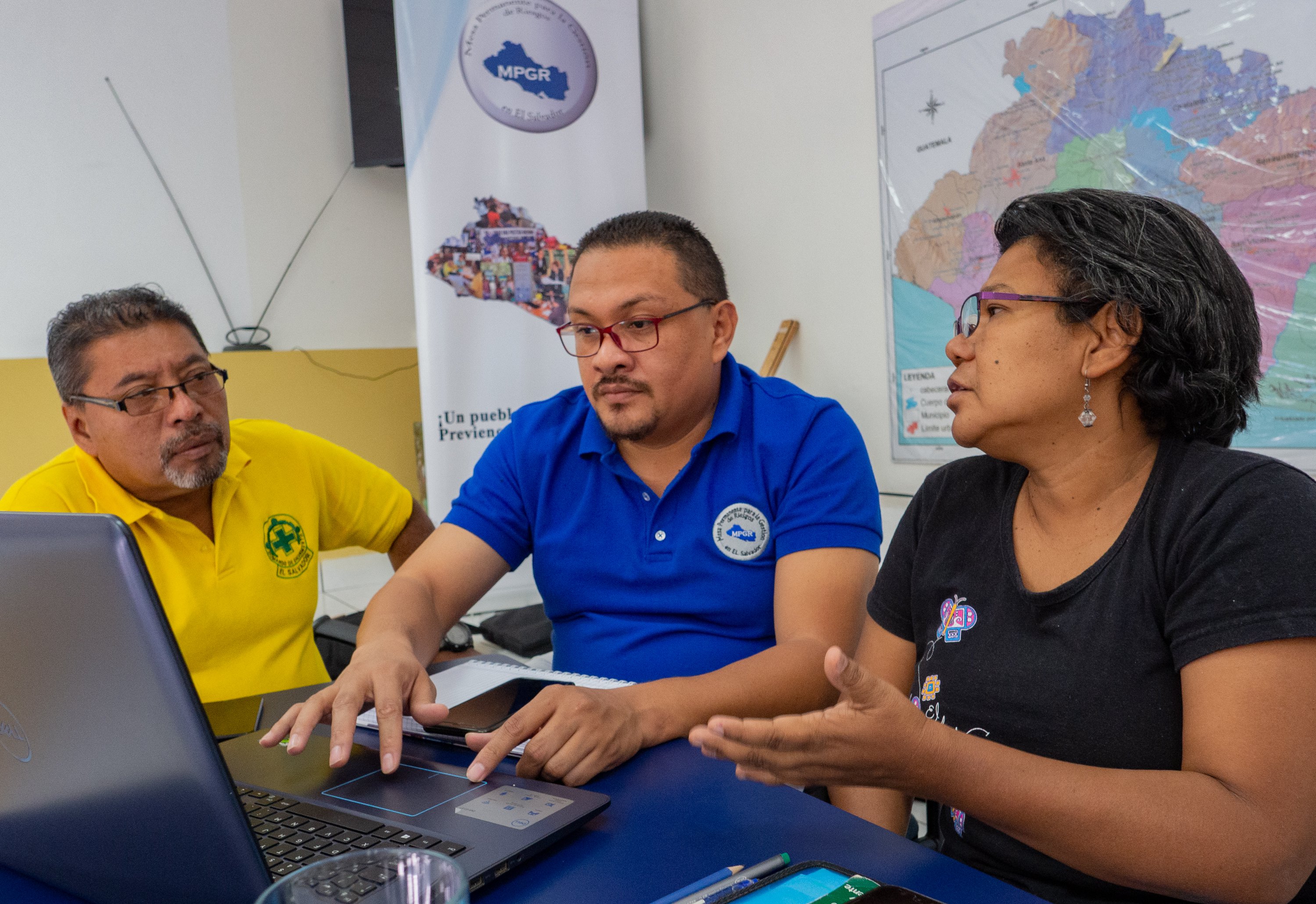Danger—from hurricanes, earthquakes, and violence to COVID-19—is a daily fact of life in El Salvador, but women like Morena del Carmen De León Martínez are making a difference.
Morena del Carmen De León Martínez has been poor all her life. She is a widow who lives in a small community outside San Salvador, El Salvador, and she cobbles together a living selling or bartering fruit, a few chickens, or the tilapia she raises in a barrel. Sometimes she finds an odd job that pays money.
“I used to be a woman who stayed in the home,” she says, but those days are long gone. Back in 2008, she decided to tackle a central issue for her community: the need for an inexpensive water supply in a place where there wasn’t a drop of naturally running water available. For women trying to care for their families, she says, lack of water for drinking, cooking, and cleaning is an emergency. As she stepped into local politics, De León Martínez braved everything from stage fright to death threats, but she made a compelling case to the municipal authorities and before long, her community was receiving affordable weekly deliveries of water. Her efforts came to the attention of Fundación Maquilishuatl (FUMA), a Salvadoran NGO, and the Mesa Permanente para la Gestión de Riesgos en El Salvador (Permanent Roundtable for Risk Management)—organizations that Oxfam has partnered with over the years in our effort to strengthen El Salvador’s capacity to manage disasters.
The Mesa, as it’s called, is a network of 23 Salvadoran organizations that works on reducing disaster risks. One of their top priorities is making sure policy makers hear from the people who live in vulnerable communities—people like De León Martínez, in other words. So, they link up promising community leaders with trainings and courses to build their knowledge and confidence, and they give them whatever support they need to speak out on issues related to effective disaster management.
As it turns out, most everything is related to disaster management.

“I’ve taken courses and workshops and learned about women’s rights, literacy, risk management, and sexual and reproductive rights,” she says. “I’ve learned that trees give us oxygen, and why we need to protect plants and animals. I’ve learned that men can’t put me down. I’ve learned not to settle.” And at the age of 55, with encouragement from the Mesa, she entered high school and soon afterward graduated with her young classmates.
In recent years, when she wasn’t feeding the chickens or meeting with her community civil protection group, you might have found her pressing a mayor to move forward on disaster preparedness, facing down a government minister about institutional sexism, or traveling around Central America to talk about the climate crisis. Now, she’s working with the mayor’s office and local organizations to get food to families affected by the pandemic.
“I think what gave me confidence were the trainings I went through,” she says, “and learning to read and write.”
Magdalena Cortéz, the director of FUMA, is one of De León Martínez’s biggest fans. “She is a woman who will stand up in front of the authorities and say, ‘you’re getting it wrong, and here’s what you need to do.’”

Searching for the secrets of success
Thanks in part to the work of the Mesa and its member organizations like FUMA, and to leaders like De León Martínez, El Salvador has made great strides in the last 20 years in strengthening its ability to manage disasters. So much so that Oxfam recently commissioned a study to capture the secrets of its success so others can follow suit.
What did Salvadoran humanitarian leaders do right? They developed their knowledge about disaster preparedness, response, and risk reduction, and the technical skills they needed to act on what they knew. Through networks like the Mesa, they strengthened coordination and promoted grassroots advocacy. They codified agreements into laws and policies, engaging a wide swath of civil society in the process. They opened the doors to women’s participation and leadership. In the country’s many at-risk communities, they built an understanding of the rights of citizens and the responsibilities of the state. And now, as the coronavirus threatens communities all across the country, they are spreading the word about how to stay safe, and delivering food to families in need.
El Salvador is still vulnerable to a host of disasters, but in the international movement to strengthen local humanitarian leadership, the country is a standout.
What needs improvement? Everything that’s going well could go better. For example, women’s participation in disaster management is growing rapidly, but the representation of women in leadership roles isn’t what it could be. That’s where the voices of people like De León Martínez—women who live on the front lines of emergencies and who now feel emboldened to speak out—could make a difference.
“Morena is an example of how women’s leadership has changed,” says Cortéz. She adds with a smile, “She makes me very proud to be a Salvadoran woman.”
###



